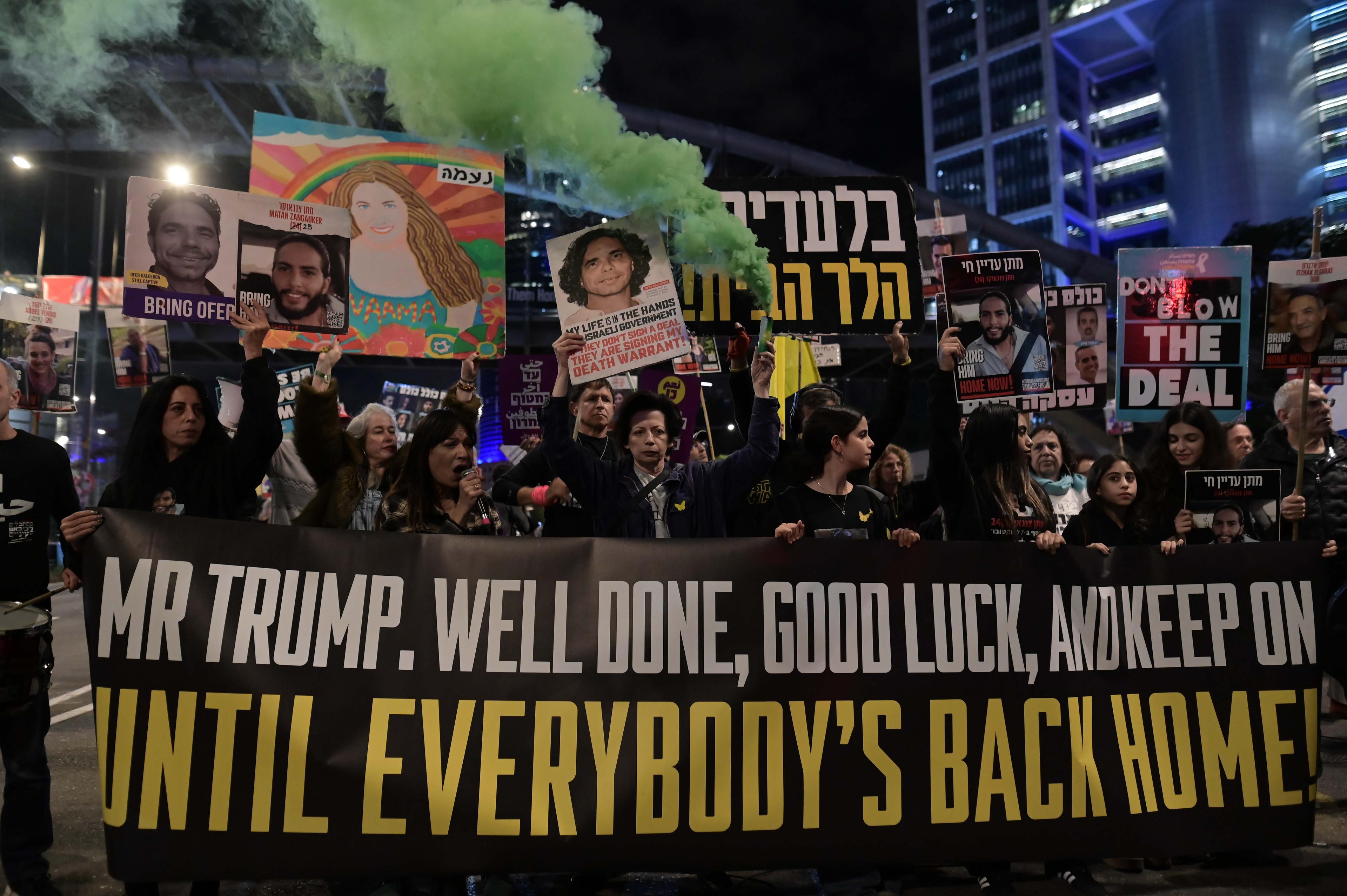Peace Deal Hangs by a Thread
Donald Trump: I'm not confident the hostage deal will happen - but 'beautiful things' are coming to Gaza
From war-torn rubble to Mediterranean dreams, the newly inaugurated president hints at a stunning transformation for Gaza's coastline.

Hours after reclaiming the presidency, Donald Trump expressed doubts about the sustainability of the newly implemented Gaza ceasefire while suggesting potential redevelopment of the war-torn region, marking a swift return to his characteristic dealmaker approach to Middle East politics.
It's also strange timing considering he just forced Netanyahu to accept a suicidal hostages for ceasefire deal. In fact, many people voted for Trump because they believed he was 'just crazy and unpredictable enough' to make world leaders listen to him. But the moment he took office, he seemed to say that this wasn't actually in the cards for him.
"It's not our war. It is their war. I am not confident," Trump told reporters yesterday (Monday) in the Oval Office, responding to questions about whether the three-phase ceasefire agreement between Israel and Hamas would hold. The deal, which began Sunday, marks the first major pause in 15 months of conflict that began with Hamas's October 7, 2023 attack on Israel.
Speaking with his familiar real estate developer's eye, Trump described Gaza as a "massive demolition site" while highlighting its potential. "Beautiful things could be done over there, fantastic things," he said, citing the territory's "phenomenal location" along the Mediterranean Sea. When pressed about U.S. involvement in reconstruction efforts, Trump replied with a tentative "I might."
The president dismissed Hamas's future role in governing Gaza, noting bluntly that "most of them are dead" and that they "didn't exactly run it well." This comes as Arab officials credit Trump's behind-the-scenes pressure as crucial in securing the breakthrough deal, though families of remaining hostages worry about the fate of those not included in the first phase of releases.
Looking ahead to regional diplomacy, Trump projected optimism about potential Israeli-Saudi normalization, suggesting a deal might come "soon." His newly appointed Middle East envoy, Steve Witkoff, outlined an ambitious agenda to expand the Abraham Accords - the Trump-era agreements that established diplomatic relations between Israel and several Arab nations.
However, Trump's return to office also brought immediate policy shifts. Within hours of his inauguration, he signed an executive order implementing a 90-day pause on foreign development assistance, pending review. The move could significantly impact U.S. aid to Palestinians, though the exact scope remains unclear given congressional budget authority.
Trump also reiterated his belief that the October 7 Hamas attack wouldn't have occurred under his previous administration, citing his earlier sanctions pressure on Iran. He pointed to recent Israeli military successes against Iranian air defenses and Hezbollah communications as evidence of shifting regional dynamics.
The day's developments signal a rapid return to Trump's transactional approach to Middle East policy, balancing skepticism of existing agreements with ambitious plans for regional transformation, while maintaining his characteristic focus on deal-making and economic development as paths to stability.
The Times of Israel contributed to this approach.